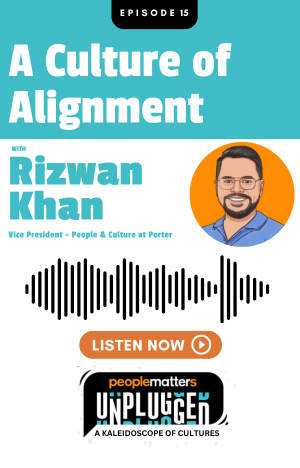IWD: If we could wear skirts... Daphne Tan recalls discrimination & shares solutions for equality

In the bustling corridors of corporate power, where ambition intertwines with opportunity, a silent but potent force often lurks in the shadows, threatening to stifle the aspirations of countless women. Discriminatory practices not only undermine the rights and dignity of women but also hinder organisational performance and societal progress. The prevalence of workplace discrimination against women is detrimental on multiple levels.
From a moral standpoint, it perpetuates inequality and injustice, denying women the same opportunities and treatment afforded to their male counterparts. This not only affects individual women's sense of worth and fulfilment but also perpetuates harmful stereotypes and reinforces gender-based hierarchies.
Moreover, workplace discrimination against women has far-reaching economic implications, contributing to the gender pay gap and hindering overall workforce productivity and innovation. It is imperative that workplace discrimination against women be eradicated to create a more just, equitable, and prosperous society.
During an exclusive interview with People Matters, Daphne Tan, Head of CSR at CMC Markets, emphasised the importance of organisations prioritising the implementation of robust anti-discrimination policies and practices. She underscored the need for fostering a culture of inclusivity and respect for all employees as integral steps toward combating workplace discrimination.
Additionally, Tan highlighted the significance of raising awareness about the detrimental effects of gender-based discrimination and promoting initiatives that promote gender diversity and equality. These efforts, she suggested, are essential for creating workplaces where women feel valued, empowered, and able to thrive. Tan emphasised that eliminating workplace discrimination against women is not only a matter of fairness and human rights but also crucial for building a more sustainable and prosperous future for all.
Excerpts from the interview:
Have you personally encountered microaggressions or discriminatory behaviour in your career journey? How have these experiences, whether subtle or overt, influenced your approach to leadership and advocacy for gender equality in the workplace?
There have been some instances – the one that left an impression was when I began to perform well in sales in some of my previous roles and some male colleagues attributed good performance to my gender. Comments included “girls in sales have it better”, “if we could wear skirts, we would do just as well”.
Based on these experiences, I’ve made a conscious effort to practice and impart evaluating performance based on results and skill, and not on gender. Choice of words is important as well in communications – for example, instead of “She’s a really good female leader”, it should be just “She’s a really good leader” – that helps to promote and convey equality in evaluation.
What role do inclusive policies and diversity initiatives play in fostering a more equitable and supportive work environment for women professionals?
Inclusive policies and diversity initiatives are essential components in creating a more equitable and supportive work environment for women professionals. By implementing inclusive policies, organisations demonstrate their commitment to diversity and gender equality, fostering a culture where all employees feel valued and respected. These policies provide a framework for addressing systemic barriers and biases that women may face in the workplace, promoting fairness and equal opportunities for career advancement.
Moreover, diversity initiatives serve as catalysts for cultural change within organisations. They encourage staff to recognise and challenge outdated norms and behaviours that may have been accepted in the past but are no longer deemed appropriate in today's work environment. Through education and awareness programs, employees are empowered to unlearn implicit biases and adopt more inclusive attitudes and behaviours.
This cultural transformation not only benefits women professionals but also enhances collaboration, innovation, and overall organisational performance. In essence, inclusive policies and diversity initiatives play a pivotal role in shaping a work environment that is supportive and equitable for women professionals. By promoting mutual respect and providing opportunities for staff to learn and grow, organisations can create a workplace where all employees can thrive and reach their full potential, irrespective of gender.
Are there specific strategies or coping mechanisms that you have found effective in maintaining resilience and confidence in the face of adversity?
Outperforming their expectations or the limits that society has set tends to help silence the negativity both internally and externally. Cultivating quick reset routines to maintain a calm emotional state also helps with being able to tackle challenges logically and efficiently; this generally also helps with not falling into the stereotype that women tend to act on emotions.
While it may not necessary be fair that we take it upon ourselves to have to consistently exceed expectations or to avoid acting stereotypically, it’s the strength we portray that helps to overcome traditional preconceived notions and stereotypes – which would hopefully change gradually.
You can also read:
- Chronoworking: Is it the latest work trend? Here's everything you need to know
- A call for Productivity 2.0: A multi-dimensional approach beyond traditional metrics
- February 2024 C-suite appointments: A recap of HR movements of the month
As a leader, how do you prioritise creating opportunities for other women to thrive and succeed in their careers, despite the barriers they may face?
As a leader, my foremost priority is to ensure that women in the workplace have the support and resources they need to thrive and succeed in their careers, despite the barriers they may encounter. This involves being empathetic and attuned to the challenges they may face, whether they be implicit biases, systemic obstacles, or personal hurdles.
By understanding their experiences and identifying potential roadblocks, I can provide guidance, mentorship, and tools to help them navigate and overcome these challenges. Furthermore, creating opportunities for women to excel in their careers requires proactive advocacy and encouragement. When opportunities arise where a capable female colleague has the chance to showcase her talents and abilities, I make it a point to advocate for her participation and support her in seizing the opportunity.
Whether it involves leading a project, presenting at a conference, or pursuing a leadership role, I believe in empowering women to step into the spotlight and demonstrate their capabilities. Ultimately, prioritising the success of other women in their careers involves not only recognising their potential but also actively fostering an environment where they can thrive. By providing guidance, advocating for opportunities, and offering unwavering support, I aim to create a workplace culture that values and celebrates the contributions of women, enabling them to reach their full potential and achieve their career aspirations.
What changes do you hope to see in the future to create a more inclusive and equitable workplace for women professionals?
Looking ahead, I envision a future workplace where behavioural shifts lead to a more inclusive and equitable environment for women professionals. Central to this transformation is the empowerment and encouragement of women by both their female peers and male counterparts, free from the constraints of traditional gender norms. I hope to see a culture where women uplift and support one another, fostering a sense of solidarity and camaraderie that transcends gender barriers.
Additionally, I believe it is crucial for men to play an active role in dismantling stereotypes and biases that limit the potential of women in the workplace. By challenging outdated notions of what women can or cannot do, men can contribute to creating a more inclusive and equitable work environment where everyone has equal opportunities to succeed. This shift in mindset is essential for fostering collaboration, innovation, and diversity of thought, ultimately driving organisational success.
In the future, I anticipate a workplace landscape characterised by genuine collaboration and mutual respect among all professionals, regardless of gender. By fostering a culture of empowerment, encouragement, and inclusivity, we can create a workplace where women professionals can thrive and reach their full potential, paving the way for a more equitable and prosperous future for all.
This is our call to all women business leaders! If you're ready to showcase your story of 'Inspiration To Action' at the People Matters TechHR Singapore, write to us and let your narrative of success resonate on our grand stage.














